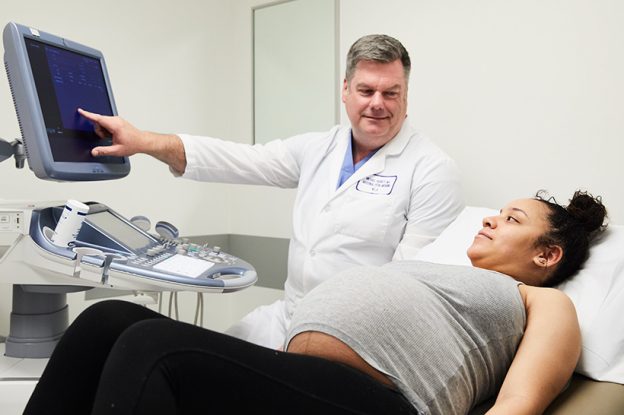
Severe morning sickness associated with higher risk of autism
At A Glance
- Children whose mothers had hyperemesis gravidarum — a severe form of a morning sickness — during pregnancy were 53% more likely to be diagnosed with autism spectrum disorder.
- Awareness of this association may create the opportunity for earlier diagnosis and intervention in children at risk of autism.
Children whose mothers had hyperemesis gravidarum — a severe form of a morning sickness — during pregnancy were 53% more likely to be diagnosed with autism spectrum disorder, according to Kaiser Permanente research published in the American Journal of Perinatology.
“This study is important because it suggests that children born to women with hyperemesis may be at an increased risk of autism,” said lead study author Darios Getahun, MD, PhD, of Kaiser Permanente Southern California Department of Research & Evaluation. “Awareness of this association may create the opportunity for earlier diagnosis and intervention in children at risk of autism.”
Hyperemesis gravidarum occurs in less than 5% of pregnancies. Affected women experience intense nausea and are unable to keep down food and fluids. This can lead to dangerous dehydration and inadequate nutrition during pregnancy.
To determine the extent of the association between hyperemesis gravidarum and autism spectrum disorder, researchers reviewed electronic health records of nearly 500,000 pregnant women and their children born between 1991 and 2014 at Kaiser Permanente in Southern California. They compared children whose mothers had a diagnosis of hyperemesis gravidarum during pregnancy to those whose mothers did not.
Other findings from the research included:
- Exposure to hyperemesis gravidarum was associated with increased risk of autism when hyperemesis gravidarum was diagnosed during the first and second trimesters of pregnancy, but not when it was diagnosed only in the third trimester.
- Exposure to hyperemesis gravidarum was associated with risk of autism regardless of the severity of the mother’s hyperemesis gravidarum.
- The association between hyperemesis gravidarum and autism spectrum disorder was stronger in girls than boys and among whites and Hispanics than among blacks and Pacific Islanders.
- The medications used to treat hyperemesis gravidarum did not appear to be related to autism risk.
The results are consistent with the hypothesis that women experiencing hyperemesis gravidarum have poor nutritional intake, which may, in turn lead to potential long-term neurodevelopment impairment in their children. The study cannot, however, rule out other possible explanations, such as perinatal exposures to some medications and maternal smoking.
In addition to Dr. Getahun, authors on this paper include Michael Fassett, MD, of Kaiser Permanente West Los Angeles Medical Center, Los Angeles; Steven Jacobsen, MD, PhD, Anny Xiang, PhD, and Harpreet Takhar, MPH, of Kaiser Permanente Southern California Department of Research & Evaluation, Pasadena, Calif.; Deborah Wing, MD, MBA, of University of California Irvine, Irvine, Calif.; and Morgan Peltier, PhD, Winthrop University Hospital Research Institute, Mineola, New York.
About the Kaiser Permanente Southern California Department of Research & Evaluation
The Department of Research & Evaluation conducts high-quality, innovative research into disease etiology, prevention, treatment and care delivery. Investigators conduct epidemiologic research, health services research, biostatistics research, and behavioral research as well as clinical trials. Major areas of study include chronic disease, infectious disease, cancer, drug safety and effectiveness, and maternal and child health. Headquartered in Pasadena, California, the department focuses on translating research to practice quickly to benefit the health and lives of Kaiser Permanente Southern California members and the general public. Visit kp.org/research.
About Kaiser Permanente
Kaiser Permanente is committed to helping shape the future of health care. We are recognized as one of America’s leading health care providers and not-for-profit health plans. Founded in 1945, Kaiser Permanente has a mission to provide high-quality, affordable health care services and to improve the health of our members and the communities we serve. We currently serve 12.3 million members in eight states and the District of Columbia. Care for members and patients is focused on their total health and guided by their personal Permanente Medical Group physicians, specialists and team of caregivers. Our expert and caring medical teams are empowered and supported by industry-leading technology advances and tools for health promotion, disease prevention, state-of-the-art care delivery and world-class chronic disease management. Kaiser Permanente is dedicated to care innovations, clinical research, health education and the support of community health. https://about.kaiserpermanente.org/





